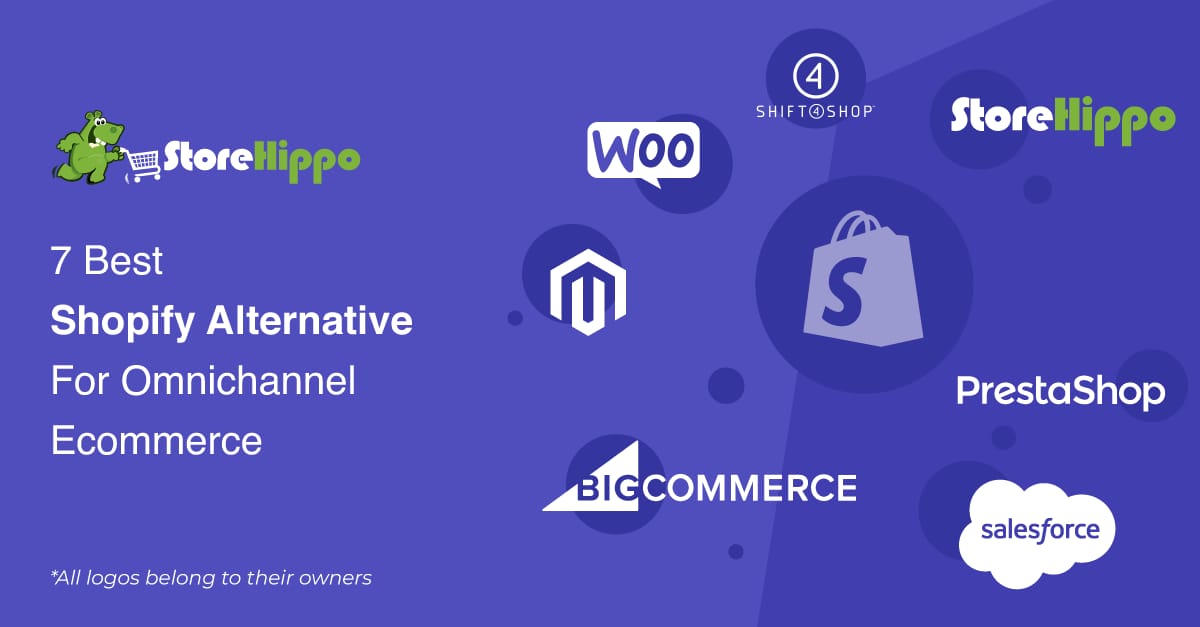In today's fast-paced digital world, enterprise businesses can't afford to stick to just one channel for reaching customers. For enterprises, Omnichannel Ecommerce is no longer a luxury; it’s a necessity.
Imagine this—your customer starts browsing your website on their phone during their morning commute, then checks product reviews on social media at lunch, and finally walks into your store after work to make the purchase. That’s the beauty of omnichannel commerce—meeting your customers wherever they are, whenever they’re ready.
And yes, your brand needs to have a solid omnichannel strategy that allows you to provide a seamless shopping experience across multiple customer touchpoints—whether it's online, in-store, or on mobile. While many businesses go with Shopify to implement omnichannel commerce solutions, there are several strong alternatives that offer robust omnichannel capabilities.
But first, let’s check out some of the trends observed in the omnichannel sphere over the years.
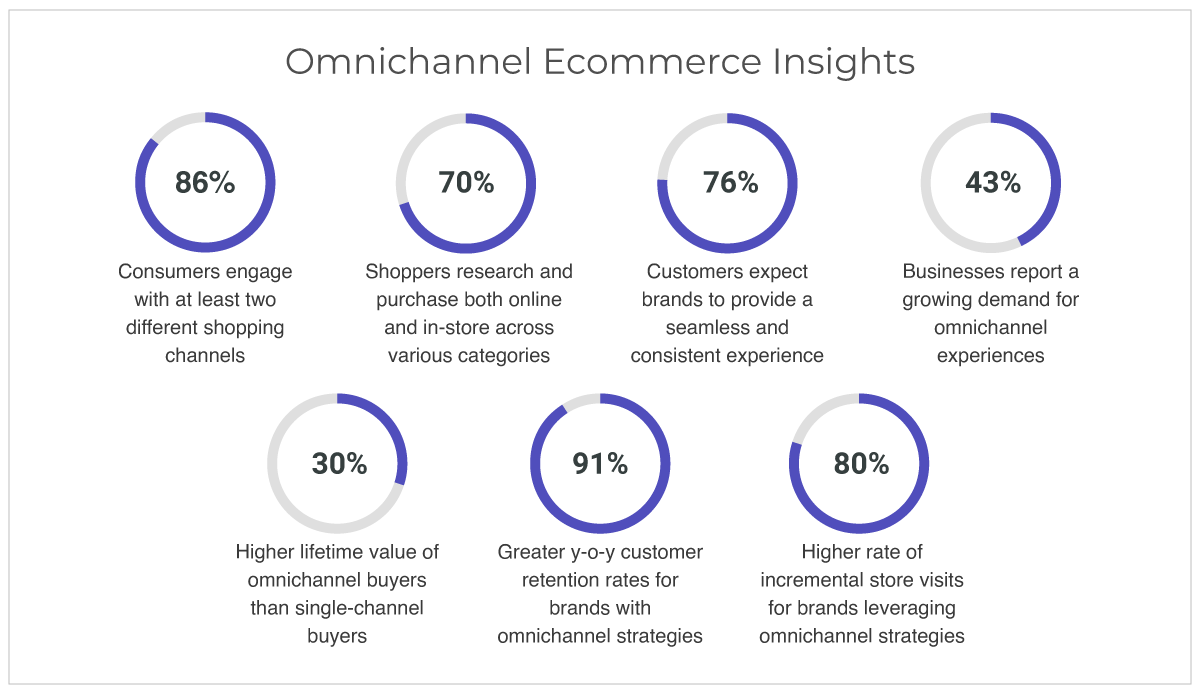
- 86% of consumers engage with at least two different shopping channels
- 60-70% of shoppers research and purchase both online and in-store across various categories
- 76% of customers expect brands to provide a seamless and consistent experience
- 43% of businesses report a growing demand for omnichannel experiences
- 30% higher lifetime value of omnichannel buyers than single-channel buyers
- 91% greater y-o-y customer retention rates for brands with omnichannel strategies
- 80% higher rate of incremental store visits for brands leveraging omnichannel strategies
Source: Trengo, Intelligence Node
Table of Contents
7 Best Shopify Alternatives To Build Your Enterprise’s Omnichannel Ecommerce Presence
Here, we explore 7 Shopify alternatives that help Indian enterprises to build a robust omnichannel presence and target the vast markets opening up to online buying.
7 Shopify Alternatives to build a solid OMnichannel ecommerce presence
1. StoreHippo
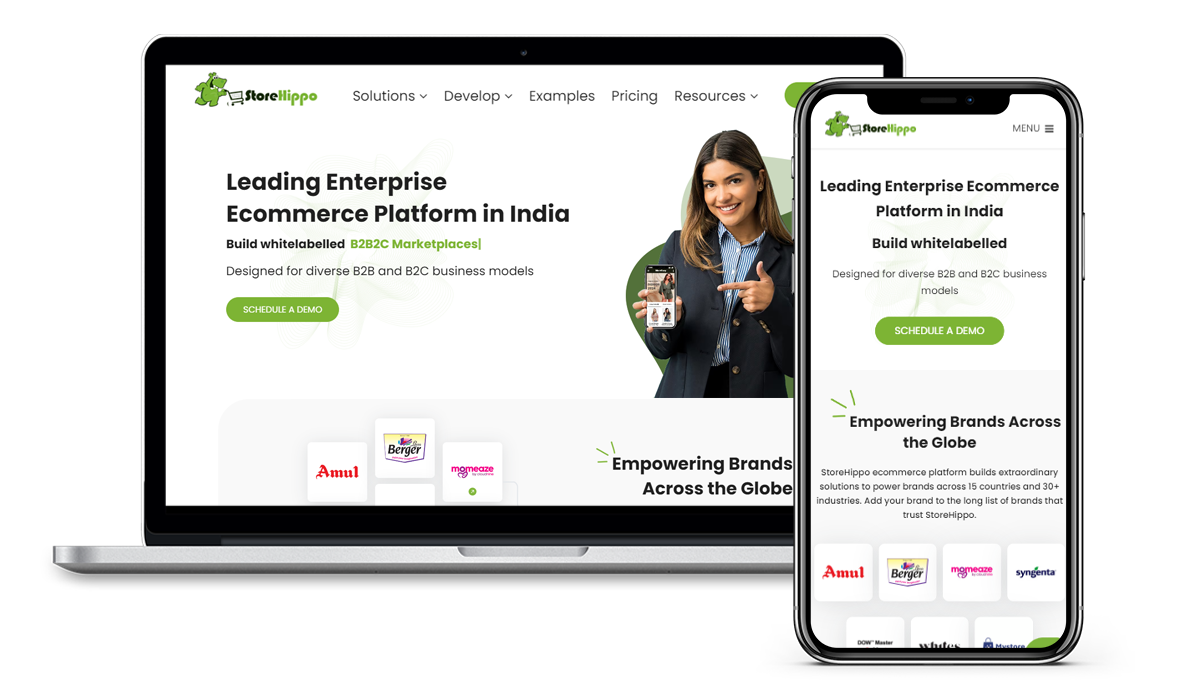
StoreHippo is a leading eCommerce platform built on a pure headless architecture. Designed for businesses of all sizes, StoreHippo offers a flexible and highly customizable framework to create unique omnichannel experiences using the same backend logic to create multiple new frontends. It's an especially powerful Shopify omnichannel alternative for enterprises that need seamless integration across multiple touchpoints, like mobile, web, and physical stores.
Pros:
- Headless Architecture: StoreHippo’s headless setup allows complete flexibility in front-end customization and also allows backend tweaks enabling brands to have greater freedom in creating tailored experiences across channels.
- Omnichannel Ready: Built-in omnichannel solutions that set up multiple touchpoints including mobile commerce, social commerce, marketplace integrations and any other modern commerce-able touchpoints.
- Mobile-First Approach: StoreHippo includes a built-in mobile app builder and PWA, making it easy to engage customers via smartphones, making it the best Shopify omnichannel alternative to tap far-off Indian markets.
- Scalable and Flexible: Designed to handle multi-seller marketplaces, multi-location store networks, and global stores with multi-currency and multilingual capabilities.
- Support for Diverse Business Models: StoreHippo comes with built-in support for diverse business models like B2B, B2C, D2C, B2B2C, Quick Commerce, Hyperlocal Commerce, and any other disruptive business models.
- Build-in Marketing solutions: SEO friendly omnichannel ecommerce platform with a gamut of built-in marketing tools like blog engine, discount engine, abandoned cart recovery, and more.
Cons:
- Advanced multi-channel solutions are available with higher plans
- Lacks POS system for offline sales.
Best Suited For:
Enterprises looking for a future-proof omnichannel platform with extensive mobile and customization capabilities and building pan-India omnichannel ecommerce presence
2. BigCommerce
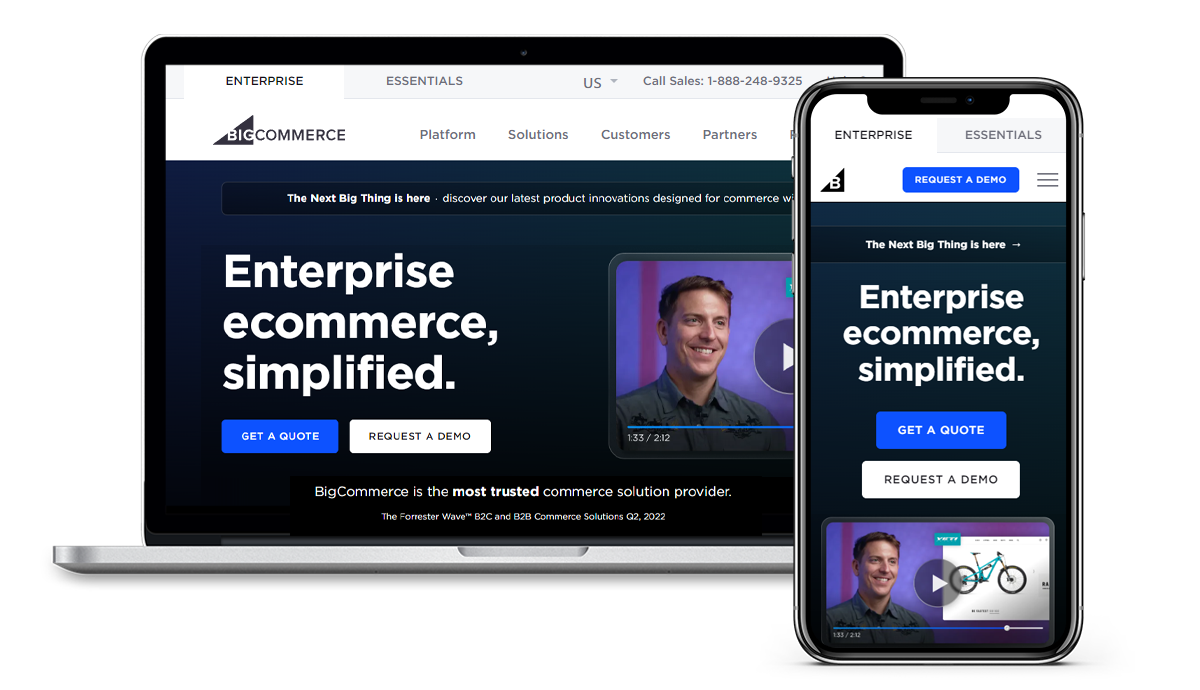
BigCommerce is known for its scalability and enterprise-grade features. Its omnichannel capabilities come through its seamlessly integration across multiple channels, making it a top Shopify omnichannel alternatives for companies that want to build a strong multichannel presence.
BigCommerce integrates smoothly with social media platforms like Facebook and Instagram, marketplaces such as Amazon and eBay, and even physical retail stores. This makes it one of the top choices for businesses that need to engage customers across multiple touchpoints. Its unified dashboard allows businesses to manage all channels in one place, providing a streamlined approach to omnichannel commerce.
Pros:
- Scalable: Ideal for businesses looking to grow and expand into multiple channels.
- Marketplaces Integration: Seamless integrations with platforms like Amazon, eBay, and Facebook for omnichannel ecommerce.
- Multi-Storefront Support: Manage multiple storefronts from a single platform.
Cons:
- Customization Limitations: While flexible, it lacks the full customization freedom that headless solutions offer.
- Higher Pricing for Advanced Features: Costs can add up quickly for businesses needing more features.
Best Suited For:
Medium to large businesses that need an omnichannel ecommerce platform in India with marketplace integration.
3. Magento (Adobe Commerce)
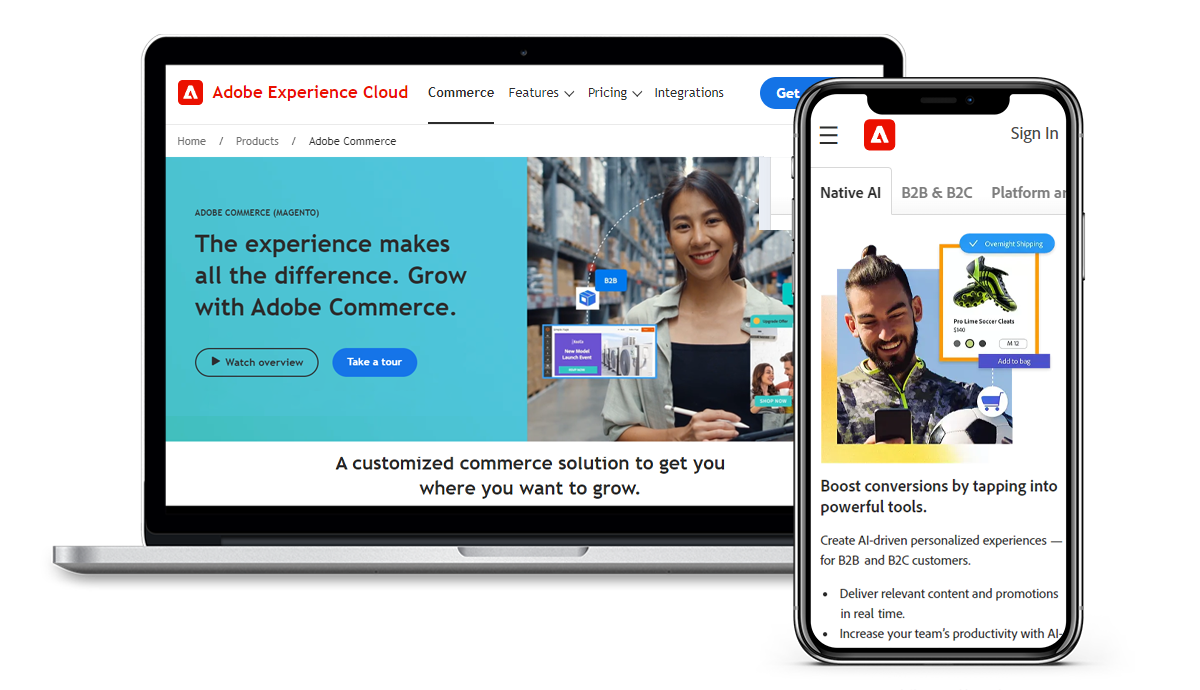
Magento, now part of Adobe Commerce, is one of the most customizable eCommerce platforms available, making it a go-to choice for Indian enterprises looking for Shopify omnichannel alternatives to deliver a seamless multi-channel shopping experience to their buyers.
Magento’s flexibility comes from its open-source foundation, allowing businesses to develop fully tailored solutions that align with their omnichannel strategies. With the ability to integrate with a range of third-party services, including social media, online marketplaces, and POS systems, Magento offers businesses the opportunity to create a seamless shopping experience. Its extensive features for inventory management, marketing automation, and customer engagement make it a strong candidate for businesses aiming for comprehensive omnichannel success.
Pros:
- Highly Customizable: Full control over your store’s front-end and back-end through extensive customization.
- Omnichannel Extensions: Supports omnichannel ecommerce solutions through various third-party integrations.
- Advanced Features: Magento offers enterprise-level tools for inventory management, multi-storefronts, and more.
Cons:
- Complex Setup: Magento has a steep learning curve and often requires development expertise.
- Costly Maintenance: High customization comes with high development and maintenance costs.
Best Suitable For:
Magento is suitable as a Shopify alternative to go omnichannel for large enterprises with the technical resources to manage a customizable, feature-rich platform that needs to be maintained inhouse or through expert service providers with prior Magento experience.
4. WooCommerce
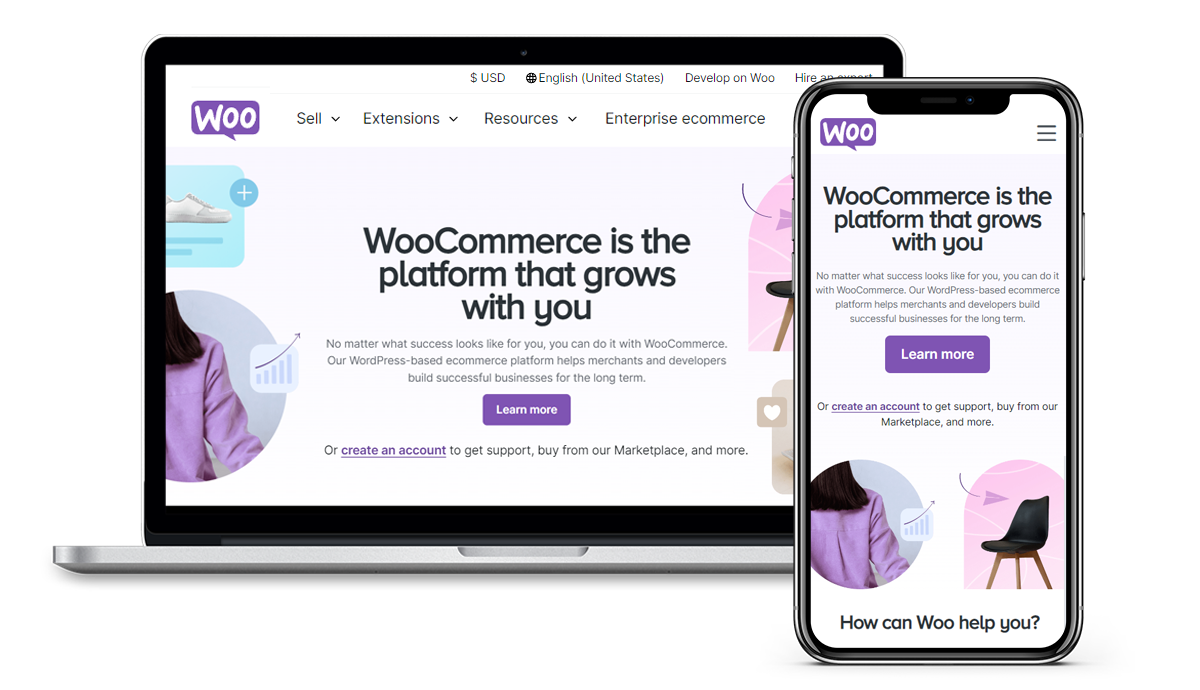
WooCommerce, as a WordPress-based platform, offers businesses a highly flexible and customizable eCommerce solution. It's a particularly good Shopify alternative for small to medium-sized businesses looking to multiply their sales channels by leveraging omnichannel commerce.
With the help of various plugins, WooCommerce can be transformed into a powerful omnichannel platform, allowing integration with physical stores, marketplaces, social media platforms, and more. The large ecosystem of plugins and extensions makes WooCommerce a versatile choice for businesses seeking to build a seamless customer experience across multiple channels while leveraging the simplicity of WordPress.
Pros:
- Open Source: Complete customization and control over your store.
- Cost-Effective: Free to start, with options for paid extensions and features.
- Large Plugin Ecosystem: Offers plugins for omnichannel ecommerce functionalities like POS, marketplaces, and social media.
Cons:
- Maintenance Required: Being open-source, it requires regular updates and maintenance.
- Limited Out-of-the-Box Omnichannel: Requires multiple plugins to achieve omnichannel integration, which can be cumbersome.
Best Suitable For:
Small to medium businesses that are already using WordPress, looking for a flexible, low-cost omnichannel ecommerce solution.
5. Salesforce Commerce Cloud
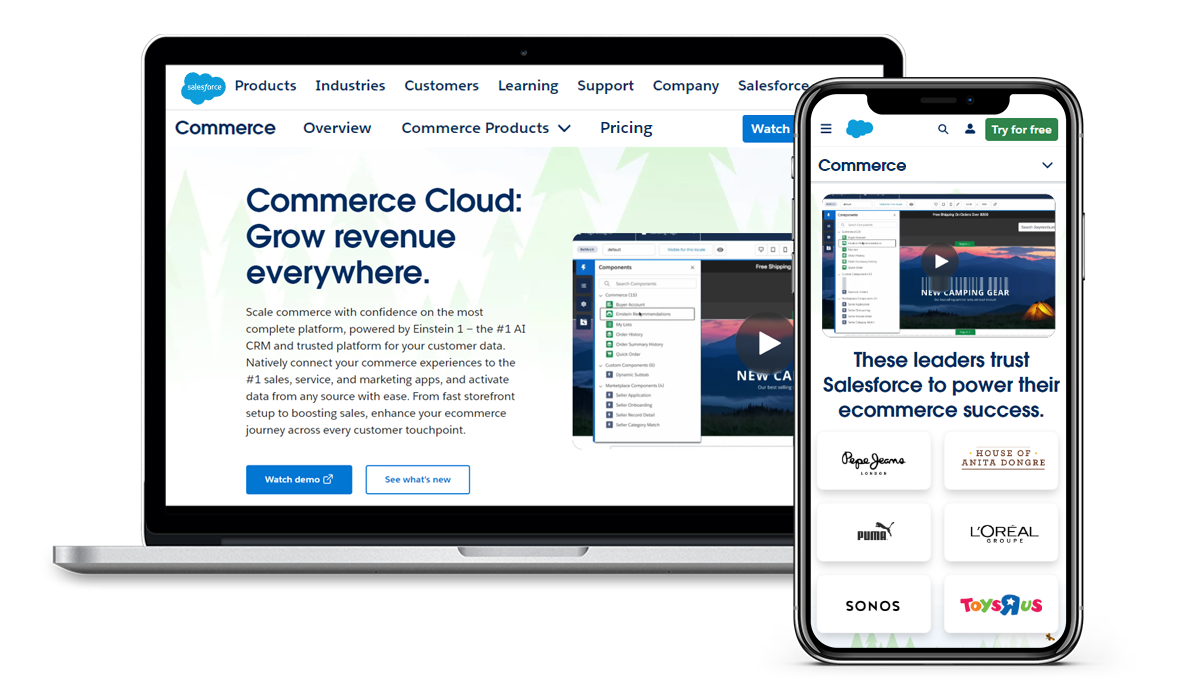
Salesforce Commerce Cloud is an enterprise-level platform considered a good Shopify alternative for large enterprises that need fully integrated, data-driven omnichannel solutions. Salesforce is deeply integrated with the Salesforce CRM, which enables businesses to offer personalized, data-driven experiences across multiple channels.
From online stores to mobile apps, and physical retail stores to social media, Salesforce Commerce Cloud ensures a unified shopping experience that is consistent and tailored to customer preferences making it one of the best Shopify omnichannel alternatives. Its AI-powered insights and extensive marketing tools further enhance its capability as one of the best solutions for enterprises looking to implement sophisticated omnichannel strategies.
Pros:
- CRM Integration: Seamless integration with Salesforce CRM for a personalized customer experience across channels.
- Mobile Apps: Has support for building mobile apps.
- Omnichannel Marketing: Supports sophisticated omnichannel marketing campaigns across email, social media, and mobile.
- Advanced Analytics: Offers powerful analytics tools to monitor customer behavior across channels.
Cons:
- High Costs: The platform is quite expensive and suited only for large multinational enterprises looking for Shopify alternatives.
- Complex Implementation: Requires substantial time and resources to implement and maintain.
Best Suited For:
Large enterprises looking for deep customer insights and integrated omnichannel strategies find Salesforce Commerce Cloud to be a good Shopify competitor for planning omnichannel marketing and sales strategies.
6. PrestaShop

PrestaShop is an open-source platform that offers flexibility for businesses to build custom eCommerce experiences, including omnichannel commerce set up to connect with customers across multiple touchpoints. Although it is a more suited Shopify omnichannel alternative to small and medium-sized enterprises, PrestaShop’s modular nature allows it to integrate with various sales channels such as marketplaces, social media platforms, and even physical retail locations.
Through its extensions and plugins, businesses can achieve omnichannel integration that connects online and offline customer touchpoints. The global reach of PrestaShop with its multi-language and multi-currency support makes it a solid option for businesses looking to expand internationally with a consistent customer experience across channels.
Pros:
- Open Source: High customization options for those with development expertise.
- Global Reach: Multi-language and multi-currency support for international expansion.
- Omnichannel Integration: Supports third-party modules for omnichannel capabilities like POS and social media selling.
Cons:
- Requires Development Skills: Customization requires technical expertise.
- Limited Out-of-the-Box Features: Additional modules are needed to create a full omnichannel experience.
Best Suited For:
Small to medium-sized businesses looking for a customizable open-source platform to have a multi-channel presence on websites, marketplaces, social channels, etc.
7. Shift4Shop

Shift4Shop provides a feature-rich platform that includes built-in tools for omnichannel commerce, making it a valuable option for businesses seeking to streamline their operations across different sales channels. Its core strength lies in its ability to integrate social media, email marketing, and POS systems into one cohesive ecosystem. Shift4Shop’s intuitive interface makes it easy for businesses to manage multiple channels, track inventory, and run marketing campaigns, all while delivering a unified experience to customers. It’s a viable Shopify alternative for businesses planning to sell across channels without extensive technical complexity.
Pros:
- All-in-One Solution: Includes tools for omnichannel marketing, inventory management, and payments.
- Free Plan Available: Offers a free version for small businesses.
- SEO-Friendly: Comes with built-in SEO tools for better online visibility.
Cons:
- Customization Limits: Not as flexible as headless platforms like StoreHippo or Magento.
- Limited Advanced Features: Larger businesses seeking Shopify omnichannel alternatives may find the feature set lacking for more complex needs.
Best Suited For:
Small to medium-sized businesses seeking a budget-friendly omnichannel platform.
Conclusion
While all these platforms offer strong Shopify omnichannel alternatives, StoreHippo stands out with its true headless architecture, delivering unmatched flexibility and scalability. Its built-in mobile app builder, PWA capabilities, and seamless integrations across all customer touchpoints make it the ideal choice for businesses seeking a unified customer experience. Whether engaging customers via web, mobile, or in-store, StoreHippo’s comprehensive omnichannel capabilities enables effortless creation of multiple sales touchpoints.
For a future-proof, customizable, and mobile-first omnichannel solution, StoreHippo offers a compelling alternative to Shopify, tailored to your business needs.
Experience the power of StoreHippo’s omnichannel ecommerce platform in India and beyond borders. Start your 14-day free trial now.
